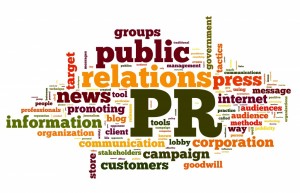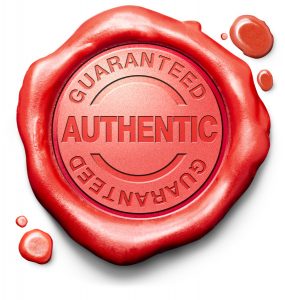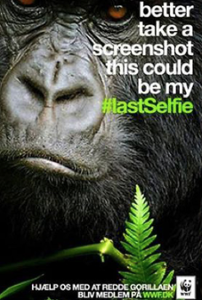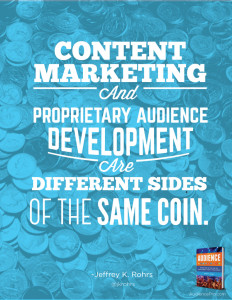By Megan Brenig, Published October 17, 2014
Recovering after a media or  brand crisis can be a make it or break it moment. Some businesses handle crisis well, some take precautions and learn from previous mistakes, and some will freeze and fail. Recovery potential and duration vary based on several different factors: the scale of the crisis, the brand’s reputation prior to the crisis, and the sincerity of the apology and cleanup efforts. In this article we will explore three brands that trumped controversy with flying colors.
brand crisis can be a make it or break it moment. Some businesses handle crisis well, some take precautions and learn from previous mistakes, and some will freeze and fail. Recovery potential and duration vary based on several different factors: the scale of the crisis, the brand’s reputation prior to the crisis, and the sincerity of the apology and cleanup efforts. In this article we will explore three brands that trumped controversy with flying colors.
Taco Bell’s “seasoned beef” meat filling lawsuit (2011)
Taco Bell’s parent company Yum! Foods faced a lawsuit from an Alabama based firm claiming that the fast food chain’s beef was not FDA approved. The prosecutor sought to force Taco Bell to stop calling the meat that they served beef based on rumors that Taco Bell meat contained only 35% beef. Naturally, this raised a lot of controversy amongst Taco Bell consumers and put the spotlight on Taco Bell for a quick response.
How they responded: Taco Bell addressed the allegations as “absolutely wrong” by launching an entire campaign that disclosed its meat ingredients. The campaign included full-page ads in major newspapers, television spots, and YouTube videos to proclaim its taco filling as 88% beef and 12% “special ingredients,” which were later unveiled as seasonings and water for moisture. The prosecutors responded by withdrawing the lawsuit. As a result, Taco Bell gained a lot of positive media buzz, and its reputation amongst consumers actually saw a positive increase.
Domino’s’ employee food scandal (2009)
The Domino’s scandal is a perfect example of employees owning a big part of a company’s brand. Several years ago, a YouTube video was posted showing two Domino’s employees doing some pretty disturbing and unsanitary things in their workstation. The woman in the video was also later unveiled to be a registered sex offender. The video inevitably went viral and Domino’s received a lot of distrust and a heavy backlash from the public. If you haven’t already seen the video, you can check out news coverage about it here.
How they responded: Domino’s immediately issued this statement:
“The opportunities and freedom of the Internet is wonderful. But it also comes with the risk of anyone with a camera and an Internet link to cause a lot of damage, as in this case, where a couple of individuals suddenly overshadow the hard work performed by the 125,000 men and women working for Domino’s across the nation and in 60 countries around the world.”
The President of Domino’s USA also responded with this video within 24 hours:
The company fired the employees and stated that it would revamp its hiring practices, while police issued a felony warrant for the two people involved. While the perception of Domino’s quality among consumers “went from positive to negative” according to YouGov, a research firm which holds online surveys of about 1,000 consumers every day in regard to hundreds of brands, the brand’s immediate response did help to soften the blow and reassure consumers that the acts committed were not acceptable.
The Tylenol recall (1982)
The “Chicago Tylenol Murders” is another exemplary display of how a company effectively handled a media crisis. Johnson & Johnson, parent company to Tylenol (which was the US top pain killer brand in America at the time), faced a huge crisis when 7 Chicago citizens were reported dead after consuming their extra-strength medicine. Reportedly an unknown suspect had tempered with the capsules by adding 65 grams of lethal cyanide to an unknown supply of bottles. It was reported that the suspect removed the bottles from the shelves, added the cyanide, and replaced them. This had a huge affect on the brand as Tylenol controlled 37 percent of its market with revenue of about $ 1.2 million. After the cyanide poisonings, its market share was reduced to seven percent.
How they responded:
Because there was no way to tell how many bottles had been tampered with, Johnson & Johnson issued warnings to hospitals and distributors and immediately stopped all production and advertising. They then issued a nationwide recall of all Tylenol products, an estimated 31 million bottles. The retail value lost by the company was over US $ 100 million. The company actually paid for advertisement in the national media to encourage the market to not consume any products that contained the acetaminophen painkiller. After it was concluded that capsules were the only products tampered with, Johnson & Johnson offered to exchange all Tylenol capsules that had already been purchased with solid pills. The company received a lot of positive media buzz over the way that they handled the matter and the incident actually brought light to the issue of inadequate packaging.
Mistakes happen and a brand crisis could be around any corner. When crises arise, the bad PR is separated from the good, and the good from the great. Each of these well-handled faux pas had two things in common:
- They had an action plan.
- They responded quickly.
Business Articles | Business 2 Community
(563)
Report Post







